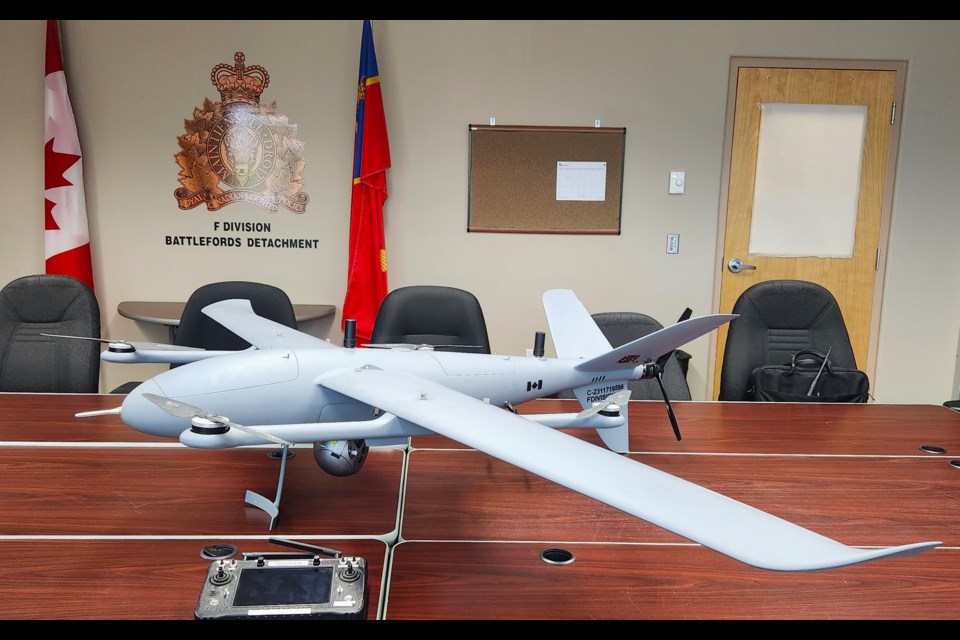NORTH BATTLEFORD — Saskatchewan RCMP will have the latest unmanned aircraft technology for air support for its policing services and other activities that will protect people, acquiring drones that would be deployed in every detachment across the province.
Saskatchewan RCMP Support Services Unit Inspector Devin Pugh is the head of the remotely piloted aircraft systems program, which is expanding drone technology to enhance air support whenever the need arises.
“We are expanding our usage of our remotely piloted aircraft throughout Saskatchewan. Particularly, we purchased two fixed-wing larger remotely piloted aircraft systems. We want to use this aircraft to provide air support to our frontline officers on the ground when they are responding to calls,” Pugh said.
The North Battleford RCMP detachment held a two-day demonstration over the weekend where a trained and licensed officer flew one of the fixed-wing Sky Furys for a few minutes within the city.
“Right now, we have many of our frontline officers trained and licensed in Saskatchewan. Those are the members in our detachments that operate the smaller quadcopters, the helicopters that we have. We have another corps of people that are better trained to operate our [unmanned] aircraft as well,” added Pugh.
He said the Saskatchewan RCMP has two of the larger fixed-wing aircraft being used in their Regina and Prince Albert detachments, which have both licensed and trained operators that can easily be deployed if needed.
“So, if we have a missing person or a search and rescue operation is needed, we can deploy those larger aircraft from those locations which are within our quick response model,” said Pugh, since the drones have thermal imaging that can help RCMP with their search and rescue operations for a missing person or locate a suspect that has evaded law enforcement.
Pugh said that they plan to expand the program in the entire province, so they had to test the drones first to see their capabilities and viability before acquiring more units deployed in their detachments all over the province.
“I believe it is going to be very effective. We can request for further funding and see if we can expand it. These [drones] do not have any facial capabilities or license plate readers. It has the same technology that is on our other police aircraft. The difference is we are using autopilot,” said Pugh.
“Thermal imaging assists us greatly when looking for missing people in the woods where we can pick up the thermal image. Just by being able to identify where they are and that expedites the process to locate them.”
The remotely operated aircraft can fly at an altitude of 500 feet off the ground and can reach a speed of almost 145 kilometres per hour. The cost of one unit is about $40,000.
Pugh said the program will increase their effectiveness and efficiency in policing by providing air support for their ground units.
“We’re excited to see this project take flight. By utilizing this innovative technology, we can provide crucial air support for our officers on the ground in real time. Expanding this to all our detachments across Saskatchewan will increase our ability to effectively respond to crimes in progress and support more efficient search and rescue operations. We are seeing some quick success in search and rescue, the ability to quickly identify and locate people that are either vulnerable or missing,” said Pugh.
“All our units have thermal imaging capabilities and can be deployed quickly. That helps us identify the locations of [missing] people. We also utilize this technology to enhance the safety of the public and our officers. We can put it up quickly to find [any] suspect, identify them and see if they are armed.”


